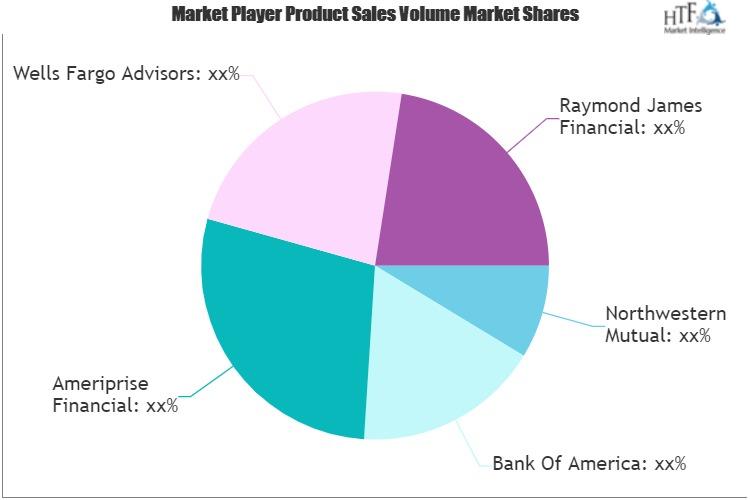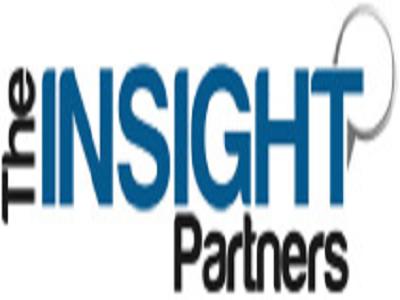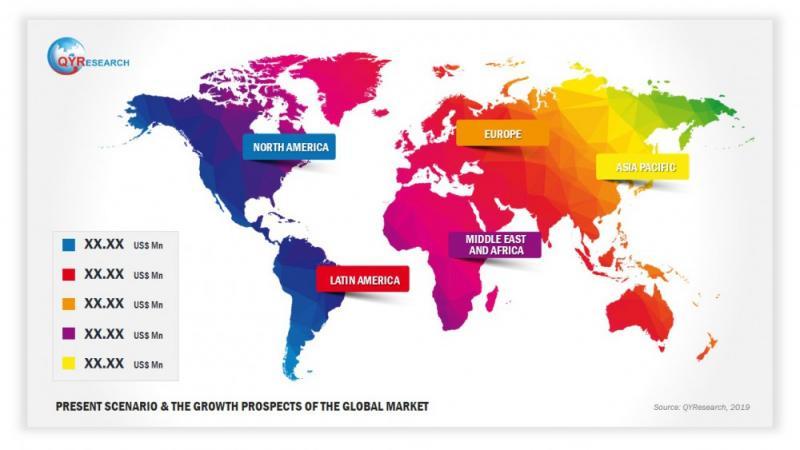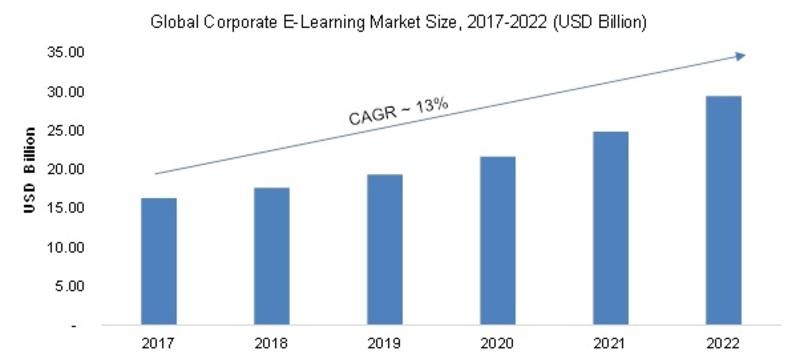Press release
Immune Checkpoint Inhibitors Market Forecast to Touch USD 107 Billion by 2034 | Persistence Market Research Report
Introduction
The field of oncology is witnessing a revolution with the advent of immune checkpoint inhibitors (ICIs), a class of immunotherapy drugs that have dramatically improved the prognosis for cancer patients. These inhibitors work by blocking proteins that prevent the immune system from attacking cancer cells, effectively unleashing the body's natural defenses against tumors.
With increasing adoption across various cancer types and ongoing research expanding their potential applications, the immune checkpoint inhibitors market is poised for significant growth. According to Persistence Market Research, the market is expected to reach USD 107 billion by 2034, growing at a CAGR of 15%. This rapid expansion is driven by increasing cancer incidence, advances in immunotherapy, and rising investments in oncology research.
Get a Sample PDF Brochure of the Report (Use Corporate Email ID for a Quick Response): https://www.persistencemarketresearch.com/samples/20122
Understanding Immune Checkpoint Inhibitors
Immune checkpoints are regulatory pathways in the immune system that help maintain self-tolerance and prevent excessive immune responses that could damage normal tissues. However, cancer cells exploit these checkpoints to evade immune attack. Checkpoint inhibitors block these pathways, allowing the immune system to recognize and destroy cancer cells more effectively.
The two most widely targeted immune checkpoints are:
Programmed Death-1 (PD-1) and Programmed Death-Ligand 1 (PD-L1): Found on T cells and tumor cells, respectively, these proteins suppress immune responses. Inhibitors targeting PD-1 and PD-L1, such as pembrolizumab (Keytruda) and nivolumab (Opdivo), have shown remarkable success in treating various cancers.
Cytotoxic T-Lymphocyte-Associated Protein 4 (CTLA-4): Another critical immune checkpoint, CTLA-4 acts as a brake on immune activation. Ipilimumab (Yervoy) is the leading inhibitor targeting CTLA-4, often used in combination therapies to enhance immune response.
Market Growth Drivers
The immune checkpoint inhibitors market is expanding due to several key factors:
Rising Cancer Incidence: The increasing prevalence of cancer worldwide, particularly lung, melanoma, and colorectal cancers, is driving demand for more effective and less toxic treatment options.
Success of Immunotherapy Over Traditional Treatments: ICIs have demonstrated superior survival benefits compared to chemotherapy and radiation therapy, making them the preferred choice in many oncology cases.
Expanding Indications and FDA Approvals: Immune checkpoint inhibitors are no longer limited to a few cancer types; ongoing clinical trials continue to explore their effectiveness in new areas, including hematologic malignancies and rare cancers.
Combination Therapies and Personalized Medicine: Researchers are developing combination approaches that enhance the effectiveness of checkpoint inhibitors. For instance, pairing ICIs with chemotherapy, targeted therapy, or radiation can improve treatment outcomes.
Growing Investment in Cancer Research and Biotechnology: Pharmaceutical companies and biotech firms are pouring billions into the development of next-generation checkpoint inhibitors, further accelerating market expansion.
Key Challenges and Limitations
Despite their promising potential, immune checkpoint inhibitors face several challenges:
High Treatment Costs: ICIs are among the most expensive cancer therapies, limiting accessibility, particularly in low- and middle-income countries.
Immune-Related Adverse Events (irAEs): By enhancing immune activity, checkpoint inhibitors can cause side effects such as colitis, pneumonitis, and endocrine disorders.
Managing these toxicities remains a critical concern.
Development of Resistance: Some patients do not respond to checkpoint inhibitors, while others develop resistance over time. Research is ongoing to identify biomarkers that predict response and explore strategies to overcome resistance.
Regulatory and Reimbursement Challenges: The high cost and complex nature of immunotherapy make regulatory approvals and reimbursement policies more complicated, affecting market accessibility.
Emerging Trends in the Immune Checkpoint Inhibitors Market
The future of immune checkpoint inhibitors looks promising, with several trends shaping the market:
Next-Generation Checkpoint Targets: Research is expanding beyond PD-1, PD-L1, and CTLA-4 to novel immune checkpoints like LAG-3, TIM-3, and TIGIT. These new targets could enhance the effectiveness of existing therapies and offer options for patients who do not respond to current treatments.
Advancements in Biomarker Research: Identifying reliable biomarkers such as tumor mutational burden (TMB) and microsatellite instability (MSI) is critical for predicting which patients will benefit most from checkpoint inhibitors. Precision medicine approaches are helping tailor treatments based on these biomarkers.
Combination Therapies Gaining Momentum: Scientists are exploring innovative drug combinations, including pairing ICIs with CAR-T cell therapy, oncolytic viruses, and cancer vaccines, to boost immune response and improve outcomes.
Artificial Intelligence in Drug Discovery: AI and machine learning are being utilized to accelerate the discovery of new checkpoint inhibitors, optimize clinical trials, and enhance treatment personalization.
Expanded Use in Non-Oncology Indications: While primarily used in cancer treatment, checkpoint inhibitors are being investigated for autoimmune diseases and infectious diseases like HIV and tuberculosis, opening new market opportunities.
Competitive Landscape and Key Players
The immune checkpoint inhibitors market is highly competitive, with leading pharmaceutical companies driving innovation through extensive R&D efforts. Some of the key players dominating the market include:
Merck & Co., Inc.: A market leader with its blockbuster drug pembrolizumab (Keytruda), approved for multiple cancer types and undergoing further research for expanded indications.
Bristol-Myers Squibb: A pioneer in the field with nivolumab (Opdivo) and ipilimumab (Yervoy), known for their success in melanoma and lung cancer treatment.
Roche/Genentech: Developer of atezolizumab (Tecentriq), a PD-L1 inhibitor approved for lung and bladder cancers.
AstraZeneca: Manufacturer of durvalumab (Imfinzi), widely used in non-small cell lung cancer (NSCLC) and bladder cancer.
Regeneron Pharmaceuticals: A growing player in the market with cemiplimab (Libtayo), targeting skin and lung cancers.
Pfizer: Actively investing in the development of novel immune checkpoint inhibitors and combination therapies.
Strategic collaborations, licensing agreements, and mergers & acquisitions are common strategies employed by these companies to strengthen their market presence.
Regulatory Landscape and Approvals
The immune checkpoint inhibitors market is highly regulated, with approvals granted based on extensive clinical trial data. Regulatory agencies such as the U.S. FDA, European Medicines Agency (EMA), and Japan's PMDA play a crucial role in determining market accessibility.
Recent regulatory developments include:
Approval of ICIs for Early-Stage Cancers: Traditionally used in advanced-stage cancers, checkpoint inhibitors are now being approved for neoadjuvant (pre-surgery) and adjuvant (post-surgery) settings to prevent recurrence.
Expansion of Indications: Several checkpoint inhibitors have received approvals for additional cancer types, including triple-negative breast cancer, gastric cancer, and head and neck cancers.
Accelerated Approval Pathways: Many ICIs are granted fast-track or breakthrough therapy designations, allowing them to reach patients more quickly based on promising early data.
Future Outlook and Market Opportunities
The immune checkpoint inhibitors market is expected to witness significant growth in the coming years, driven by:
Increased Adoption in Developing Markets: As healthcare infrastructure improves and cancer awareness rises, the adoption of ICIs in emerging economies will expand, providing new growth opportunities.
Personalized Immunotherapy Approaches: Tailoring checkpoint inhibitor treatments based on patient-specific genetic and immune profiles will enhance efficacy and minimize adverse effects.
Biosimilars and Cost Reduction Strategies: With patents on major ICIs expiring in the coming years, biosimilars are expected to enter the market, potentially reducing treatment costs and improving accessibility.
Enhanced Clinical Trial Efficiency: Advances in trial design, such as adaptive trials and AI-driven patient recruitment, will accelerate the development of next-generation immune checkpoint inhibitors.
Novel Drug Delivery Mechanisms: Research into nanoparticle-based delivery systems and localized drug release methods is expected to improve the safety and effectiveness of checkpoint inhibitors.
Conclusion
The immune checkpoint inhibitors market is at the forefront of modern oncology, revolutionizing cancer treatment by harnessing the power of the immune system. With a projected market value of USD 107 billion by 2034, this sector is experiencing rapid expansion, driven by scientific advancements, increasing adoption in clinical practice, and a growing pipeline of novel therapies.
Despite challenges such as high costs and resistance mechanisms, ongoing research into new targets, combination approaches, and biomarker-driven strategies will further solidify immune checkpoint inhibitors as a cornerstone of cancer therapy. As the industry moves toward personalized medicine and next-generation immunotherapies, the future of immune checkpoint inhibitors looks brighter than ever, offering hope for millions of patients worldwide.
Explore the Latest Trending "Exclusive Article":
· https://medtechpulse.wordpress.com/2025/02/10/surface-disinfectant-market-key-players-and-competitive-landscape-analysis/
· https://medtechpulse.wordpress.com/2025/02/10/ultra-low-temperature-freezer-market-adoption-in-pharma-and-biotech-sectors/
· https://medtechpulse.wordpress.com/2025/02/11/antibody-library-technology-market-driving-precision-medicine-forward/
· https://medium.com/@aishwaryadoiphode15/cell-free-protein-expression-market-advances-in-synthetic-biology-solutions-1206e613b7af
· https://medium.com/@aishwaryadoiphode15/europe-medical-plastic-market-key-trends-shaping-the-industrys-future-growth-881197ff0b2b
· https://www.manchesterprofessionals.co.uk/article/business-management/82523/orthopedic-trauma-devices-market-future-projections-and-investment-insights
· https://www.manchesterprofessionals.co.uk/article/business-management/82534/europe-medical-plastic-market-role-of-recyclable-polymers-in-sustainable-growth
About Persistence Market Research:
At Persistence Market Research, we specialize in creating research studies that serve as strategic tools for driving business growth. Established as a proprietary firm in 2012, we have evolved into a registered company in England and Wales in 2023 under the name Persistence Research & Consultancy Services Ltd. With a solid foundation, we have completed over 3600 custom and syndicate market research projects, and delivered more than 2700 projects for other leading market research companies' clients.
Our approach combines traditional market research methods with modern tools to offer comprehensive research solutions. With a decade of experience, we pride ourselves on deriving actionable insights from data to help businesses stay ahead of the competition. Our client base spans multinational corporations, leading consulting firms, investment funds, and government departments. A significant portion of our sales comes from repeat clients, a testament to the value and trust we've built over the years.
Contact Us:
Persistence Market Research
G04 Golden Mile House, Clayponds Lane
Brentford, London, TW8 0GU UK
USA Phone: +1 646-878-6329
UK Phone: +44 203-837-5656
Email: sales@persistencemarketresearch.com
Web: https://www.persistencemarketresearch.com
The field of oncology is witnessing a revolution with the advent of immune checkpoint inhibitors (ICIs), a class of immunotherapy drugs that have dramatically improved the prognosis for cancer patients. These inhibitors work by blocking proteins that prevent the immune system from attacking cancer cells, effectively unleashing the body's natural defenses against tumors.
With increasing adoption across various cancer types and ongoing research expanding their potential applications, the immune checkpoint inhibitors market is poised for significant growth. According to Persistence Market Research, the market is expected to reach USD 107 billion by 2034, growing at a CAGR of 15%. This rapid expansion is driven by increasing cancer incidence, advances in immunotherapy, and rising investments in oncology research.
Get a Sample PDF Brochure of the Report (Use Corporate Email ID for a Quick Response): https://www.persistencemarketresearch.com/samples/20122
Understanding Immune Checkpoint Inhibitors
Immune checkpoints are regulatory pathways in the immune system that help maintain self-tolerance and prevent excessive immune responses that could damage normal tissues. However, cancer cells exploit these checkpoints to evade immune attack. Checkpoint inhibitors block these pathways, allowing the immune system to recognize and destroy cancer cells more effectively.
The two most widely targeted immune checkpoints are:
Programmed Death-1 (PD-1) and Programmed Death-Ligand 1 (PD-L1): Found on T cells and tumor cells, respectively, these proteins suppress immune responses. Inhibitors targeting PD-1 and PD-L1, such as pembrolizumab (Keytruda) and nivolumab (Opdivo), have shown remarkable success in treating various cancers.
Cytotoxic T-Lymphocyte-Associated Protein 4 (CTLA-4): Another critical immune checkpoint, CTLA-4 acts as a brake on immune activation. Ipilimumab (Yervoy) is the leading inhibitor targeting CTLA-4, often used in combination therapies to enhance immune response.
Market Growth Drivers
The immune checkpoint inhibitors market is expanding due to several key factors:
Rising Cancer Incidence: The increasing prevalence of cancer worldwide, particularly lung, melanoma, and colorectal cancers, is driving demand for more effective and less toxic treatment options.
Success of Immunotherapy Over Traditional Treatments: ICIs have demonstrated superior survival benefits compared to chemotherapy and radiation therapy, making them the preferred choice in many oncology cases.
Expanding Indications and FDA Approvals: Immune checkpoint inhibitors are no longer limited to a few cancer types; ongoing clinical trials continue to explore their effectiveness in new areas, including hematologic malignancies and rare cancers.
Combination Therapies and Personalized Medicine: Researchers are developing combination approaches that enhance the effectiveness of checkpoint inhibitors. For instance, pairing ICIs with chemotherapy, targeted therapy, or radiation can improve treatment outcomes.
Growing Investment in Cancer Research and Biotechnology: Pharmaceutical companies and biotech firms are pouring billions into the development of next-generation checkpoint inhibitors, further accelerating market expansion.
Key Challenges and Limitations
Despite their promising potential, immune checkpoint inhibitors face several challenges:
High Treatment Costs: ICIs are among the most expensive cancer therapies, limiting accessibility, particularly in low- and middle-income countries.
Immune-Related Adverse Events (irAEs): By enhancing immune activity, checkpoint inhibitors can cause side effects such as colitis, pneumonitis, and endocrine disorders.
Managing these toxicities remains a critical concern.
Development of Resistance: Some patients do not respond to checkpoint inhibitors, while others develop resistance over time. Research is ongoing to identify biomarkers that predict response and explore strategies to overcome resistance.
Regulatory and Reimbursement Challenges: The high cost and complex nature of immunotherapy make regulatory approvals and reimbursement policies more complicated, affecting market accessibility.
Emerging Trends in the Immune Checkpoint Inhibitors Market
The future of immune checkpoint inhibitors looks promising, with several trends shaping the market:
Next-Generation Checkpoint Targets: Research is expanding beyond PD-1, PD-L1, and CTLA-4 to novel immune checkpoints like LAG-3, TIM-3, and TIGIT. These new targets could enhance the effectiveness of existing therapies and offer options for patients who do not respond to current treatments.
Advancements in Biomarker Research: Identifying reliable biomarkers such as tumor mutational burden (TMB) and microsatellite instability (MSI) is critical for predicting which patients will benefit most from checkpoint inhibitors. Precision medicine approaches are helping tailor treatments based on these biomarkers.
Combination Therapies Gaining Momentum: Scientists are exploring innovative drug combinations, including pairing ICIs with CAR-T cell therapy, oncolytic viruses, and cancer vaccines, to boost immune response and improve outcomes.
Artificial Intelligence in Drug Discovery: AI and machine learning are being utilized to accelerate the discovery of new checkpoint inhibitors, optimize clinical trials, and enhance treatment personalization.
Expanded Use in Non-Oncology Indications: While primarily used in cancer treatment, checkpoint inhibitors are being investigated for autoimmune diseases and infectious diseases like HIV and tuberculosis, opening new market opportunities.
Competitive Landscape and Key Players
The immune checkpoint inhibitors market is highly competitive, with leading pharmaceutical companies driving innovation through extensive R&D efforts. Some of the key players dominating the market include:
Merck & Co., Inc.: A market leader with its blockbuster drug pembrolizumab (Keytruda), approved for multiple cancer types and undergoing further research for expanded indications.
Bristol-Myers Squibb: A pioneer in the field with nivolumab (Opdivo) and ipilimumab (Yervoy), known for their success in melanoma and lung cancer treatment.
Roche/Genentech: Developer of atezolizumab (Tecentriq), a PD-L1 inhibitor approved for lung and bladder cancers.
AstraZeneca: Manufacturer of durvalumab (Imfinzi), widely used in non-small cell lung cancer (NSCLC) and bladder cancer.
Regeneron Pharmaceuticals: A growing player in the market with cemiplimab (Libtayo), targeting skin and lung cancers.
Pfizer: Actively investing in the development of novel immune checkpoint inhibitors and combination therapies.
Strategic collaborations, licensing agreements, and mergers & acquisitions are common strategies employed by these companies to strengthen their market presence.
Regulatory Landscape and Approvals
The immune checkpoint inhibitors market is highly regulated, with approvals granted based on extensive clinical trial data. Regulatory agencies such as the U.S. FDA, European Medicines Agency (EMA), and Japan's PMDA play a crucial role in determining market accessibility.
Recent regulatory developments include:
Approval of ICIs for Early-Stage Cancers: Traditionally used in advanced-stage cancers, checkpoint inhibitors are now being approved for neoadjuvant (pre-surgery) and adjuvant (post-surgery) settings to prevent recurrence.
Expansion of Indications: Several checkpoint inhibitors have received approvals for additional cancer types, including triple-negative breast cancer, gastric cancer, and head and neck cancers.
Accelerated Approval Pathways: Many ICIs are granted fast-track or breakthrough therapy designations, allowing them to reach patients more quickly based on promising early data.
Future Outlook and Market Opportunities
The immune checkpoint inhibitors market is expected to witness significant growth in the coming years, driven by:
Increased Adoption in Developing Markets: As healthcare infrastructure improves and cancer awareness rises, the adoption of ICIs in emerging economies will expand, providing new growth opportunities.
Personalized Immunotherapy Approaches: Tailoring checkpoint inhibitor treatments based on patient-specific genetic and immune profiles will enhance efficacy and minimize adverse effects.
Biosimilars and Cost Reduction Strategies: With patents on major ICIs expiring in the coming years, biosimilars are expected to enter the market, potentially reducing treatment costs and improving accessibility.
Enhanced Clinical Trial Efficiency: Advances in trial design, such as adaptive trials and AI-driven patient recruitment, will accelerate the development of next-generation immune checkpoint inhibitors.
Novel Drug Delivery Mechanisms: Research into nanoparticle-based delivery systems and localized drug release methods is expected to improve the safety and effectiveness of checkpoint inhibitors.
Conclusion
The immune checkpoint inhibitors market is at the forefront of modern oncology, revolutionizing cancer treatment by harnessing the power of the immune system. With a projected market value of USD 107 billion by 2034, this sector is experiencing rapid expansion, driven by scientific advancements, increasing adoption in clinical practice, and a growing pipeline of novel therapies.
Despite challenges such as high costs and resistance mechanisms, ongoing research into new targets, combination approaches, and biomarker-driven strategies will further solidify immune checkpoint inhibitors as a cornerstone of cancer therapy. As the industry moves toward personalized medicine and next-generation immunotherapies, the future of immune checkpoint inhibitors looks brighter than ever, offering hope for millions of patients worldwide.
Explore the Latest Trending "Exclusive Article":
· https://medtechpulse.wordpress.com/2025/02/10/surface-disinfectant-market-key-players-and-competitive-landscape-analysis/
· https://medtechpulse.wordpress.com/2025/02/10/ultra-low-temperature-freezer-market-adoption-in-pharma-and-biotech-sectors/
· https://medtechpulse.wordpress.com/2025/02/11/antibody-library-technology-market-driving-precision-medicine-forward/
· https://medium.com/@aishwaryadoiphode15/cell-free-protein-expression-market-advances-in-synthetic-biology-solutions-1206e613b7af
· https://medium.com/@aishwaryadoiphode15/europe-medical-plastic-market-key-trends-shaping-the-industrys-future-growth-881197ff0b2b
· https://www.manchesterprofessionals.co.uk/article/business-management/82523/orthopedic-trauma-devices-market-future-projections-and-investment-insights
· https://www.manchesterprofessionals.co.uk/article/business-management/82534/europe-medical-plastic-market-role-of-recyclable-polymers-in-sustainable-growth
About Persistence Market Research:
At Persistence Market Research, we specialize in creating research studies that serve as strategic tools for driving business growth. Established as a proprietary firm in 2012, we have evolved into a registered company in England and Wales in 2023 under the name Persistence Research & Consultancy Services Ltd. With a solid foundation, we have completed over 3600 custom and syndicate market research projects, and delivered more than 2700 projects for other leading market research companies' clients.
Our approach combines traditional market research methods with modern tools to offer comprehensive research solutions. With a decade of experience, we pride ourselves on deriving actionable insights from data to help businesses stay ahead of the competition. Our client base spans multinational corporations, leading consulting firms, investment funds, and government departments. A significant portion of our sales comes from repeat clients, a testament to the value and trust we've built over the years.
Contact Us:
Persistence Market Research
G04 Golden Mile House, Clayponds Lane
Brentford, London, TW8 0GU UK
USA Phone: +1 646-878-6329
UK Phone: +44 203-837-5656
Email: sales@persistencemarketresearch.com
Web: https://www.persistencemarketresearch.com
Permanent link to this press release:
Copy
Please set a link in the press area of your homepage
to this press release on woodPRI. woodPRI disclaims liability for any content contained in
this release.
Recommend

/newsMicroencapsulation Market Deep Analysis on Key Players - Dow Corning, Encapsys, Syngenta Crop Protection, Evonik Industries, 3M and Bayer
Market Study Report Adds Global Microencapsulation Market Size, Status and Forecast 2024 added to its database. The report provides key statistics on the current state of the industry and other analytical data to understand the market.
Extensive research is required for choosing the appropriate cor...

/newsGermany Airbag Market Size 2023: Global Share, Industry And Report Analysis By 2030 | Hyundai Mobis Co., Ltd. Key Safety Systems, Inc. Robert Bosch GmbH
Germany airbag market is expected to grow at a CAGR of around 6% during the forecast period. Germany Airbag Market research report refers to gathering and analyzing significant market data serve as best medium for various industry players to launch novel product or service. It is vital for key firms...

/newsSecurities Brokerages And Stock Exchanges Market Outlook 2021: Big Things are Happening
A new intelligence report released by HTF MI with title "Global Securities Brokerages And Stock Exchanges Market Survey & Outlook" is designed covering micro level of analysis by Insurers and key business segments, offerings and sales channels. The Global Securities Brokerages And Stock Exchange...

/newsRenewable Chemicals Market Emerging Trends and Competitive Landscape Forecast to 2028
The renewable chemicals market was valued at US$ 80,566.30 million in 2021 and is projected to reach US$ 1,76,750.76 million by 2028 it is expected to grow at a CAGR of 11.9% from 2021 to 2028. The research report focuses on the current market trends, opportunities, future potential of the market, a...

/newsHow Coronavirus is Impacting Cold Brew Coffee, Global Market Volume Analysis, Size, Share and Key Trends 2020-2026
"Market Latest Research Report 2020:
Los Angles United States, February 2020: The Cold Brew Coffee market has been garnering remarkable momentum in the recent years. The steadily escalating demand due to improving purchasing power is projected to bode well for the global market. QY Research's lates...

/newsCorporate E-Learning Market - Global Industry Size, Share, Key Players Analysis that are Infor, SkillSoft Corporation, Adrenna, CERTPOINT Systems and others with Regional Forecast to 2022
Overview:
E-Learning is used to enhance the learning procedures for newer job requirements and to make employees sound about the internal and external changes in the market and respective organizations. This method has created considerable differences in the ways of training and developing employee...
